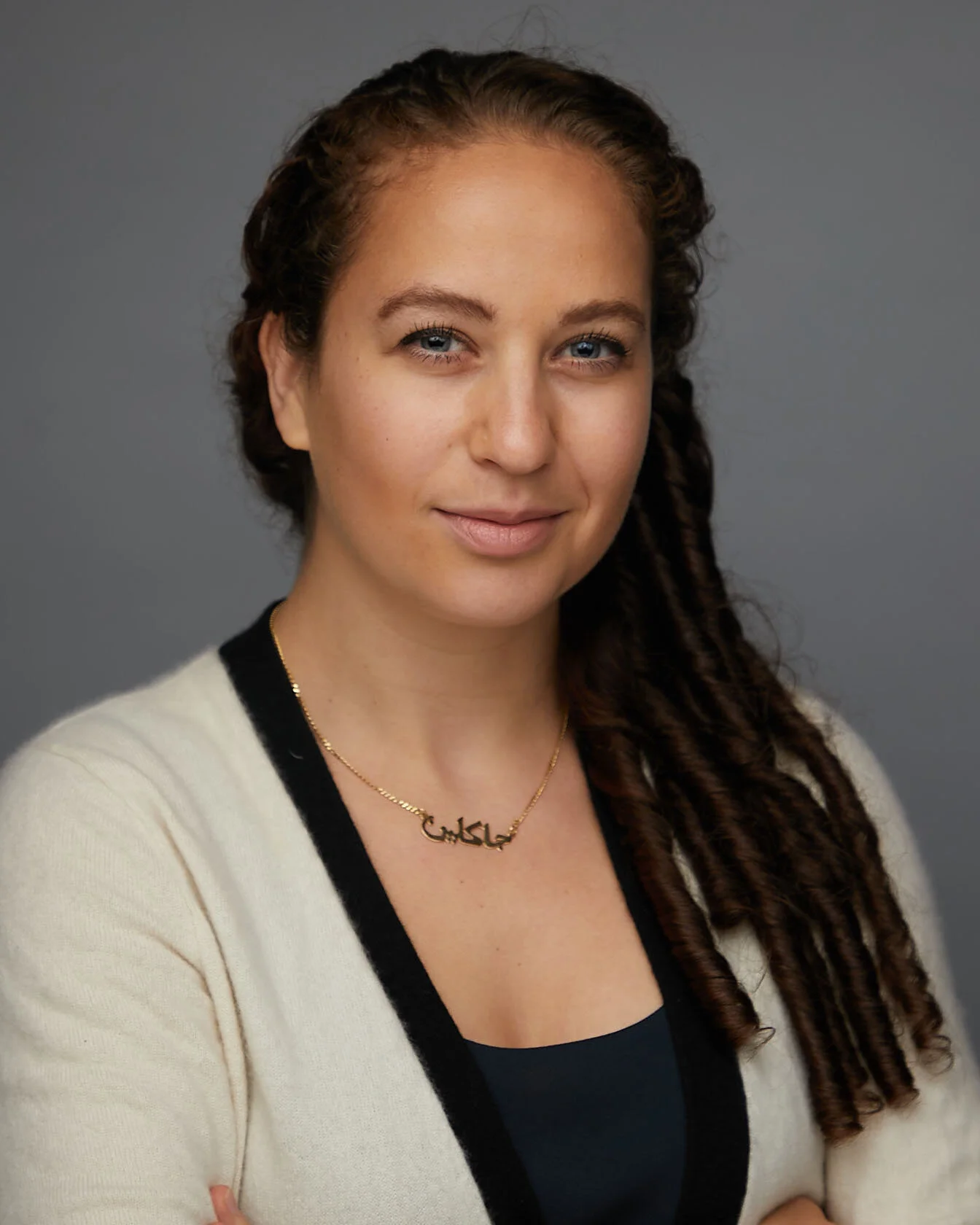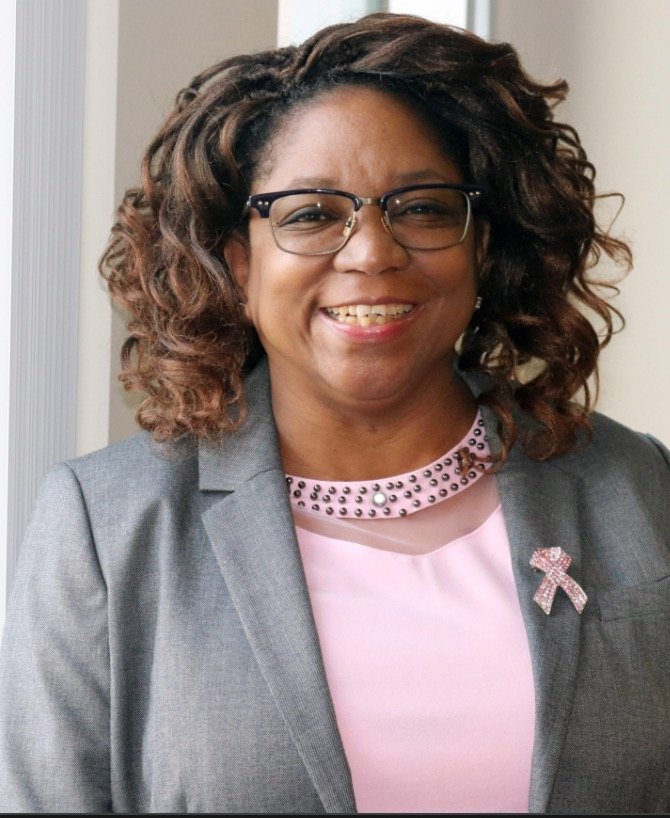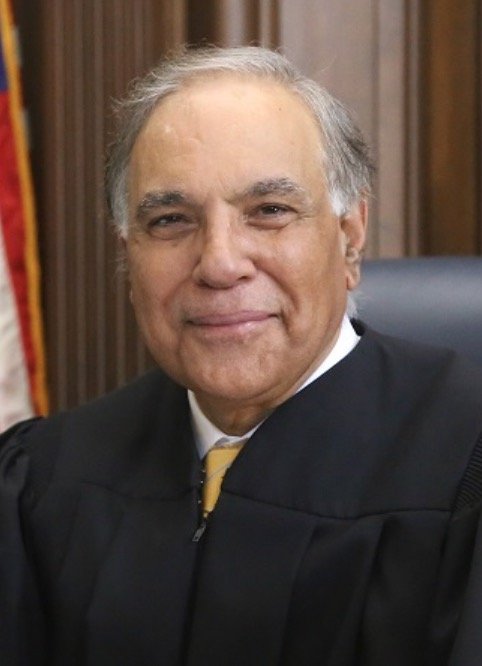Carolyn Wilkes Kaas ("Carrie")
Wilkes Kaas is an associate professor of law at Quinnipiac University School of Law, and is the co-director of the Center on Dispute Resolution. Kaas also serves as the Associate Dean of Experiential Education, as well as the director of the School of Law's concentration programs in family law and civil advocacy and dispute resolution. Professor Kaas taught for 20 years in the in-house Civil Clinic, supervising students in a variety of civil and family matters.
Kaas spoke about the Center’s comprehensive and creative perspective on dispute resolution in the following podcast: https://craftingsolutionstoconflict.com/podcast/carolyn-kaas-esq-on-quinnipiac-laws-innovative-dispute-resolution-center.
She is currently teaching a wide range of field placement courses including a Mediation Externship. She also teaches negotiation, and is the lead professor for the clinical prerequisite course "Introduction to Representing Clients," which focuses on interviewing, counseling and negotiation skills.
Kaas has served on several committees and boards, including the national Clinical Legal Education Association and the Connecticut Bar Association Standing Committee on Professionalism. In 2011, she served on the Chief Justice's Commission on Civil ADR in the Courts. She is studying non-defensive communication and its application in law and mediation, and is a founding board member of the Canadian and the international non-profit "The Non-Defensive Voice." She also serves on the boards of Connecticut Council for Non-Adversarial Divorce, Connecticut Legal Services, and is a founding member of the Connecticut Mediation Network.
Kaas graduated from Cornell University in 1976, from University of Connecticut School of Law in 1983, with highest honors, and clerked for the Honorable Ellen Bree Burns from 1983-85, at the United States District Court for the District of Connecticut. She was an associate with Wiggin and Dana before joining the faculty at the law school.
Charles A. Pillsbury ("Charlie")
Pillsbury is a part-time professor and co-director of Quinnipiac's Center on Dispute Resolution. Since 2009, he has also served as the executive director of Mediators Beyond Borders International (MBB) and is a member of MBB's Colombia Project team.
From 1989-2009, Pillsbury was the executive director of Community Mediation, Inc., a nonprofit community mediation center in New Haven, Connecticut. He was a founding Board member of the National Association for Community Mediation (NAFCM) in 1993, and was co-chair of NAFCM's Board of Directors from 1999-2001.
He is a graduate of Boston University School of Law and Yale University. Before joining Community Mediation in 1989, Pillsbury practiced law for 14 years in the New Haven area. He is married to The Rev. Allie Perry, and they live in New Haven.
Charlie Pillsbury discusses the vision and work of Mediators Beyond Borders and his path to involvement with the organization in the podcast below:
William DeVane Logue ("Bill")
Logue teaches negotiation and representation in mediation and is a senior fellow and director of training programs at the Quinnipiac Law School Center on Dispute Resolution. He is lead faculty for the center's 40‐hour mediation training. He contributed three chapters to the "Mediation Practice Book" published in 2001 by the Connecticut Bar Association and Quinnipiac Law School.
Logue has been a mediator, facilitator, consensus builder, trainer and consultant since 1986. He mediates employment, workplace, commercial, construction, environmental, and other matters. Logue has led public policy consensus-building work, and facilitation on environmental, nuclear and hazardous waste, transportation and human service issues throughout the northeast. He has designed and led conflict resolution training programs for numerous organizations in the public and private sector.
Logue is past chair of the Connecticut Bar Association Alternative Dispute Resolution Section and past co‐chair of the Standing Committee on Dispute Resolution in the Courts. Logue is also a past president of the New England Chapter of the Association for Conflict Resolution. He has been appointed as a panelist several state and federal neutral panels. He is a senior affiliate practitioner of the Massachusetts Office of Public Collaboration.
Jennifer Gerarda Brown
Dean Brown is dean and professor of law at Quinnipiac University School of Law. Brown is the founder and former director of the Center on Dispute Resolution.
Dean Brown received her AB from Bryn Mawr College and her JD from the University of Illinois College of Law. Prior to becoming a law professor, she served as a law clerk to the Honorable Harold A. Baker, U.S. District Court for the Central District of Illinois, and practiced law in the litigation department of Winston & Strawn, Chicago, Illinois. Before she joined the faculty at Quinnipiac, she taught at Emory University School of Law in Atlanta, Georgia and at the University of Chicago Law School as a Bigelow Fellow. She has been a visiting professor at Santa Clara, University of Illinois, Georgetown, and Harvard law schools.
She teaches alternative dispute resolution, negotiation, civil procedure, therapeutic jurisprudence, and lawyers' professional responsibility; her scholarship focuses on these areas as well as gender and sexual orientation. She chaired the planning committee for the 2012 Quinnipiac-Connecticut Bar Foundation John A. Speziale ADR Symposium. Brown's work has been widely published.
Kim Wright
Kim Wright is a Visiting Clinical Professor. As a legal systems change agent, Professor Wright has a lot of roles and job descriptions. She is co-founder and trainer in the Conscious Contracts(R) movement and is a pioneer in holistic law, collaborative practice, restorative justice, legal design, therapeutic jurisprudence, plain language, and other cutting-edge approaches. After a dozen years of being a nomad, bringing change, connection, and humanistic innovations on six continents, in 2020 she took her work online. Professor Wright also created the Negotiation Clinic with Professor Horani, and teaches it periodically. Beginning in 2022, she will also teach a new course, The Integrative Law Approach to Negotiation.
Professor Wright is also a consultant, connector, and trusted advisor for cutting-edge lawyers, like-minded professionals, and communities around the world. She creates courses, articles, conferences, new approaches, and organizations. Among her publications are three American Bar Association books, and J. Kim Wright, Integrative Law , 46 U. W. Austl. L. Rev. (2019).
For more information about Professor Wright and to see more of her books and published works, see http://jkimwright.com/ or https://www.linkedin.com/in/jkimwright/.
Jacqueline Horani
Jacqueline Horani is a Visiting Clinical Professor at Quinnipiac University School of Law. She currently co-teaches the innovative and fully remote Negotiations Clinic, offering students an opportunity to facilitate the negotiation of agreements between parties who might be anywhere in the world. Her career & teachings are dedicated to ‘transforming the way we work’. As a practicing attorney and business consultant, Horani focuses on a plain-language & relationship-focused approach to transactional business law and dispute resolution.
Horani is an active member of the Integrative Law Movement and the New York City Bar Association Senior Lawyers Committee. She is a certified Conscious Contracts® provider and trains attorneys & entrepreneurs in the process around the world. Her research areas focus on Access-to-Justice technology, Cross-Border Collaborations & Global Opportunities, and Ethics.
Licensed to practice law in New York & Nebraska, she speaks and consults on matters around the world.
For more information about Professor Horani, please click here to see her CV, or visit her website or LinkedIn.
Gary Phelan
Phelan is a shareholder at Mitchell & Sheahan, P.C. He represents employees and employers in a wide range of matters, including disability and age discrimination, family responsibilities discrimination, wrongful termination and severance negotiations. He is the co-author of Disability Discrimination in the Workplace (West Group) and Family Responsibilities Discrimination (BNA/Bloomberg). Gary was selected by peer review in Best Lawyers in America (1995-2020) and was designated as a “Lawyer of the Year” by Best Lawyers for the Stamford, CT Region in 2012. Gary was selected for the Connecticut Super Lawyers (2006-2020), and was designated as a “Local Litigation Star” in Benchmark Litigation (2013-2020). He has written and lectured on a wide range of employment-related topics. Gary teaches disability law, employment discrimination law and alternative dispute resolution as an adjunct professor at the Quinnipiac University School of Law.
Angela C. Robinson
Angela C. Robinson, retired Connecticut Superior Court Judge, provides alternative dispute resolution (ADR) services as a mediator, private judge, and arbitrator for all types of matters including tort, personal injury, commercial business, contract disputes, and select housing and family law. Additionally, Judge Robinson provides pre-litigation interventions, including discovery dispute resolution assistance and independent investigations.
For twenty years, Judge Robinson was a Connecticut Superior Court judge, presiding over hundreds of trials and deciding or assisting in the settlement of a variety of matters, including commercial, contract, employment, family, housing, insurance, juvenile, medical and professional malpractice, municipal, personal injury, products liability and zoning cases. As a judge, she wrote over 400 judicial decisions. At the time of her retirement, she was the Administrative Judge for the Judicial District of New Haven, and for many years prior to that, she was the Civil Presiding Judge in the New Haven Judicial District, the busiest Civil docket in the state at the time.
Judge Robinson is currently of counsel at Halloran Sage, and runs her own consulting firm to address workplace diversity, equity, and inclusion concerns. She is a Visiting Professor and the Waring and Carmen Partridge Faculty Fellow at Quinnipiac Law School, where she teaches ADR, Evidence, Remedies, and Critical Race Theory. Judge Robinson is the author of First Black Women Judges: The Story of Three Black Women Judges in the United States.
Judge Robinson complements her knowledge as a jurist with a wealth of experience as a practicing attorney. She was both a plaintiff’s lawyer at a nationally renowned boutique law firm in Bridgeport, and a litigation partner with a defense practice at a multi-state, New Haven-based law firm. This background allows Judge Robinson to bring to the ADR community a unique perspective to assist litigants from all walks of life in resolving their matters.
Judge Robinson also learned firsthand about the power and efficacy of ADR in achieving righteous outcomes. Melding her interests in ADR and workplace equity, Judge Robinson established Robinson Diversity Consulting through which she has helped litigants and prospective litigants resolve disputes informally and outside of court, as well as addressed workplace diversity, equity, and inclusion concerns.
Judge Robinson is a James W. Cooper Fellow of the Connecticut Bar Foundation. She received the Connecticut Law Tribune’s Distinguished Leader Award in 2019; the Edwin Archer Randolph Diversity Award from the Lawyers’ Collaborative for Diversity in 2017; the Judicial Award from the Connecticut Trial Lawyers’ Association; and the Diversity Award in 2014, presented by the Young Lawyers’ Section of the Connecticut Bar Association.
She serves on the Advisory Council of Connecticut Court Appointed Special Advocates (CASA), as well as the Boards of the Greater New Haven Arts Council and the New Haven Legal Assistance Association. Additionally, she is a Visiting Professor and the Waring and Carmen Partridge Faculty Fellow at Quinnipiac Law School, where she teaches Evidence, Remedies and Critical Race Theory. She also teaches trial practice at Yale Law School. Through these roles, she works to train new generations of lawyers, sharing her knowledge of the law and Diversity, Equity and Inclusion to improve the legal profession.
Nawaz Wahla
Judge Wahla’s journey to becoming a Connecticut Superior Court judge began on November 5, 2010, when he was nominated by Governor Jodi Rell and then subsequently confirmed by the House and Senate, making him the first Pakistani Muslim American to be appointed as a judge in Connecticut. Over the course of the last ten years he has presided over hundreds of cases, overseeing complex and multi-party actions. His responsibilities have included presiding over jury and bench trials, discovery disputes, pre-judgment and post judgment application remedies, motion practice and the mediation of many cases. Judge Wahla is currently serving as a civil judge in the New Haven Judicial District, and before that served as a judge in the criminal, family, and juvenile subject areas. In his capacity as a judge he has utilized decades worth of experience I had with dispute resolution, and applied and academic negotiation techniques.
Prior to being appointed to the bench, Judge Wahla was the principal in the law firm of Judge Wahla and Associates, which he founded in 1999. His clients included children, students, families, entrepreneurs, members of vulnerable populations, international refugees, and small corporate clients. He has argued cases at the trial and appellate level in the Superior Court for the State of Connecticut, and in the following federal courts: District of Connecticut, Southern District of New York and the Second Circuit Court of Appeals. As an attorney, Judge Wahla believes in the importance of dedicating himself to the community and public interest, and approximately 25% of his practice was dedicated to pro bono work. He also served as a member of the Board of Directors of the Hartford County Bar Association from 2009 to 2010, was a Bencher with the Oliver Ellsworth Inn of Court since 2006, and was happy to be a mentor to the young and diverse membership of the bar. In June 2018, he was appointed as a Senior Fellow at the EastWest Institute, a global organization engaged in the track two diplomacy, building trust and delivering solutions.
Judge Wahla has been a member of the World Affairs Council of Connecticut since 2010, where I have been extensively and consistently engaged in the domestic and international issues confronted by our world on a day to day basis. He was nominated to be a Member of the Board of the World Affairs Council of Connecticut in June 2020. In May 2018, the Fletcher School of Law and Diplomacy, appointed him to be a member of the Advisory Council for Global Master of Arts Program. In June 2018, he led a Geneva Global dialogue China-US relationship group and in May 2020, he joined the Pacific Council on International Policy. During the course of his career, Judge Wahla has received a myriad of awards. In 2011, he received the Trailblazer Award from the South Asian Bar Association of Connecticut and in that same year he was also the recipient of the Connecticut Asian Pacific American Affairs 2011 Leadership Award. Most recently, he received the 2014 Immigration Day Award for my community contributions to the Connecticut Immigrant Refugee Coalition and in 2017 I was inducted into the Immigrant Heritage Hall of Fame.
Prior to becoming a lawyer, Judge Wahla served in the Pakistan Army for approximately twenty years, and rose to the rank of major before being wounded in the line of duty. He was the recipient of an award equivalent to the purple heart. He received his LLB from the University of the Punjab Law College in Pakistan, and continued to complete his Masters in Comparative Jurisprudence at the University of Texas School of Law, and then his Masters of Law at the University of Houston. Thereafter, he was a fellow at the International Court of Justice in The Hague, Netherlands. In July 2017, he received a Masters in Global Affairs degree from Tufts University, Fletcher School of Law and Diplomacy.
Judge Wahla retired from the bench on July 2nd, 2021.










